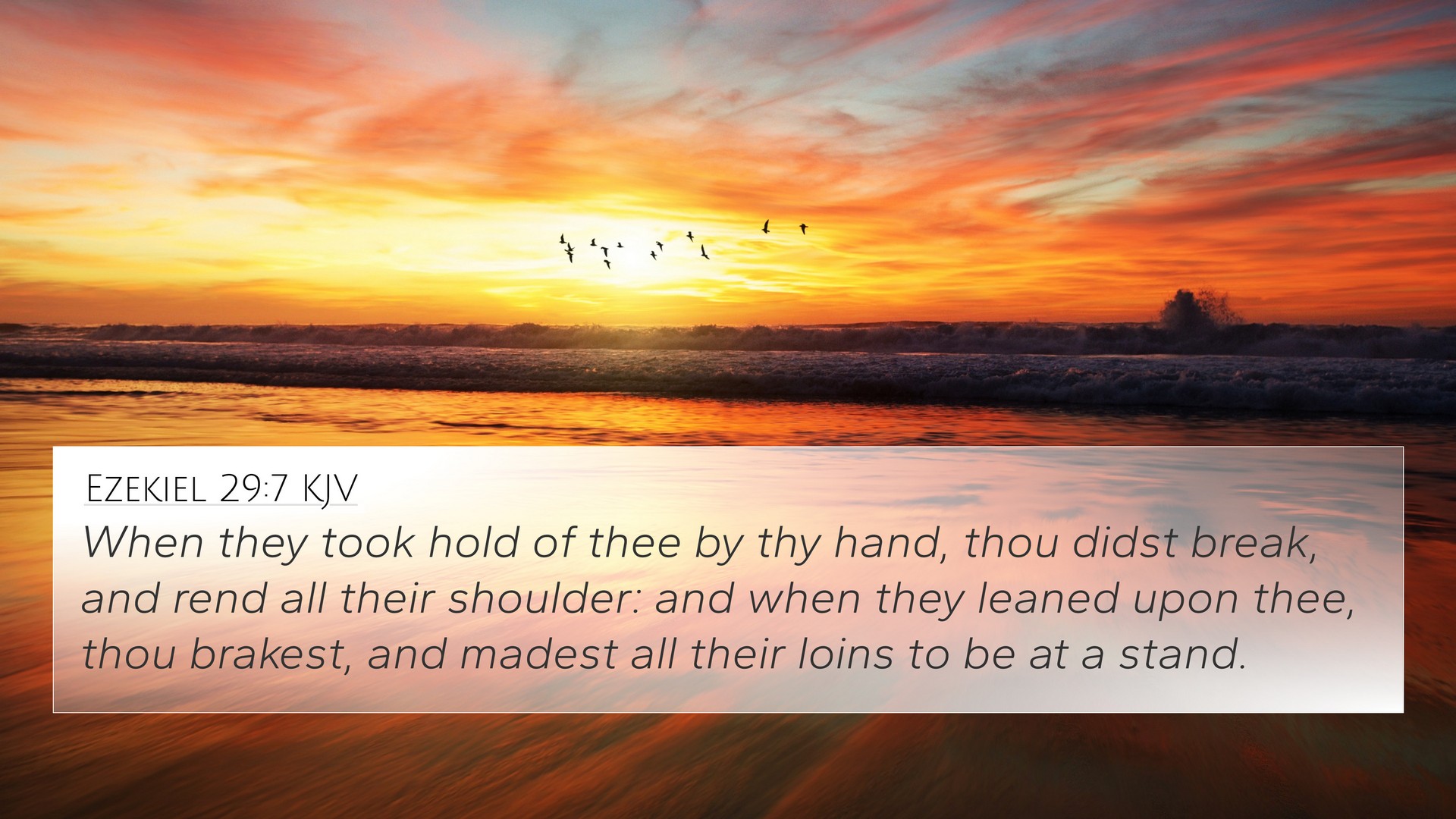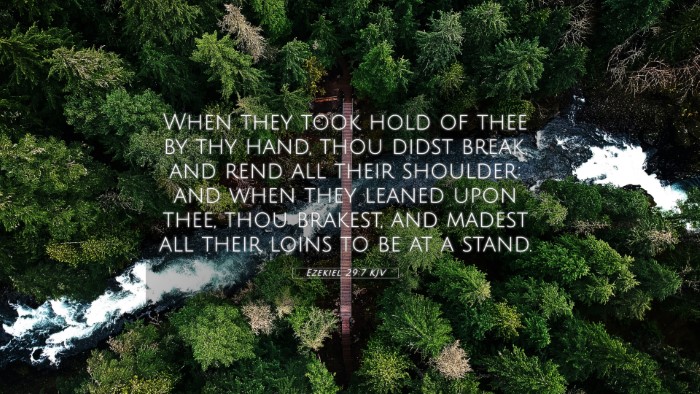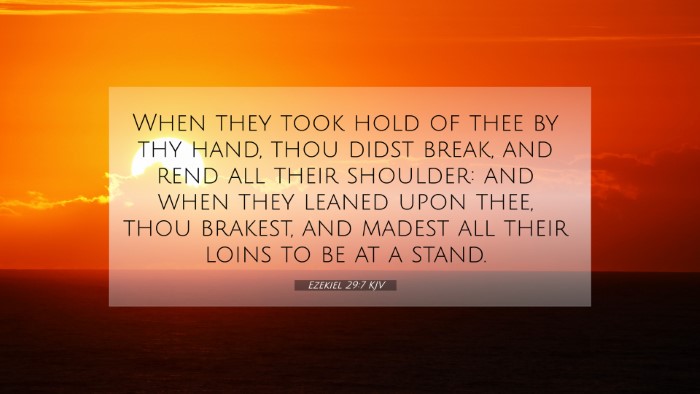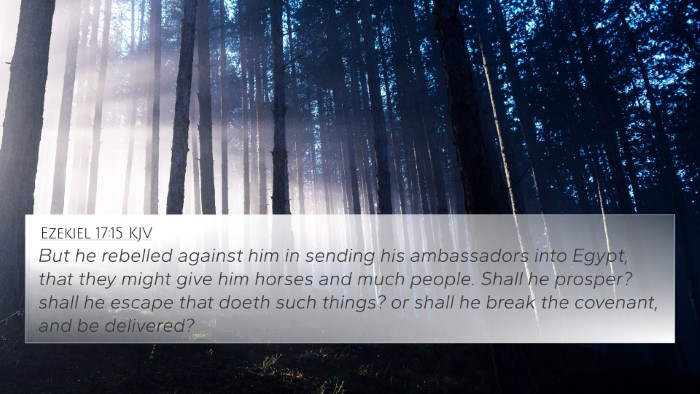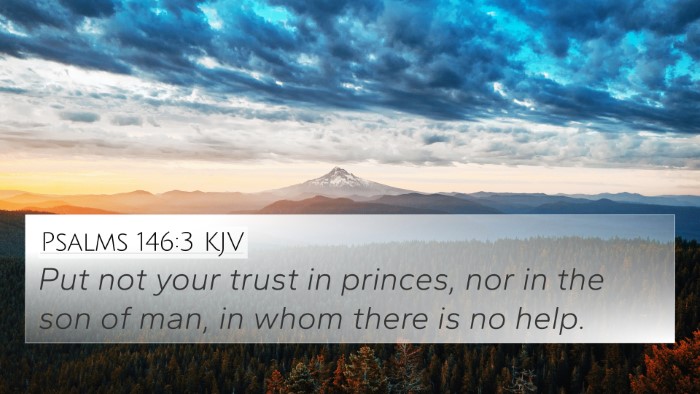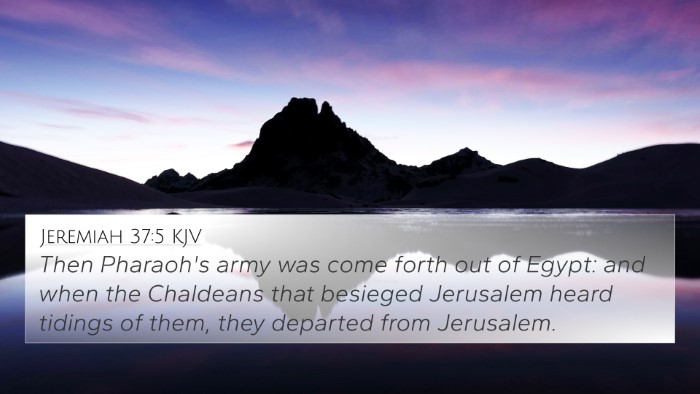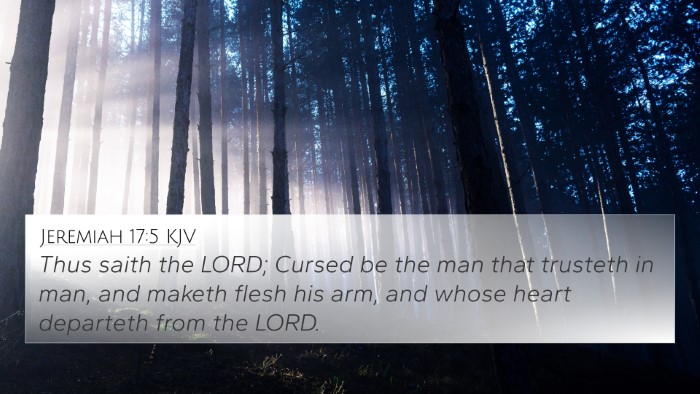Ezekiel 29:7 Meaning and Interpretation
Ezekiel 29:7 states: "When they took hold of you by your hand, you broke, and tore all their shoulders; and when they leaned upon you, you broke, and made all their loins to be at a stand." This verse carries significant meaning in the context of God's judgment against Egypt, illustrating the consequences of reliance on false hopes and idols.
Overview of the Verse
This verse serves as a metaphor for Egypt's failure and the consequences of its prideful reliance on its own strength against the threats posed by Babylon. It highlights the fragility of human alliances and the futility of seeking security outside of God.
Commentary Insights
-
Matthew Henry:
Henry emphasizes the idea that Egypt, once a powerful ally, became a broken staff for Israel. He suggests that reliance on such an ally results in disappointment, as they ultimately cannot provide the support one seeks. This serves as a metaphor for trusting in human wisdom over divine guidance.
-
Albert Barnes:
Barnes discusses the imagery of brokenness in the verse, interpreting Egypt’s weakness when tested. He highlights that the metaphor serves to warn that those who place their trust in unreliable sources will ultimately face destruction and loss.
-
Adam Clarke:
Clarke reflects on the historical context, explaining how Egypt's fate foreshadows greater spiritual truths. He stresses that God’s intervention is necessary for strength, and warns against the danger of dependency on nations rather than on divine providence.
Related Biblical Themes
The verse ties into broader themes found throughout Scripture that discuss dependency on God versus human reliance. Here are some connections and parallels:
- Jeremiah 17:5-6: "Cursed is the man who trusts in man and makes flesh his strength, whose heart turns away from the LORD." This verse echoes the message of Ezekiel 29:7.
- Isaiah 31:1: "Woe to those who go down to Egypt for help and rely on horses, who trust in chariots because they are many, and in horsemen because they are very strong..." Similar imagery of reliance and consequence is prevalent.
- Psalms 146:3: "Put not your trust in princes, in a son of man, in whom there is no salvation." This speaks against dependency on human authority.
- Proverbs 3:5: "Trust in the LORD with all your heart, and do not lean on your own understanding." This emphasizes the importance of divine trust over human wisdom.
- Matthew 7:26-27: "And everyone who hears these words of mine and does not do them will be like a foolish man who built his house on the sand." This illustrates the consequences of poor foundations, reflecting human dependence.
- Hebrews 12:26: "At that time his voice shook the earth, but now he has promised, 'Yet once more I will shake not only the earth but also the heavens.'" This speaks to God's ultimate authority and the instability of earthly powers.
- 2 Chronicles 32:8: "With him is an arm of flesh, but with us is the LORD our God, to help us and to fight our battles." A clear contrast between human and divine support.
Inter-Biblical Dialogue
The concept of Egypt as a broken ally resonates across Scripture, as numerous passages discuss the folly of looking to human strength for salvation and stability:
- Isaiah 19:17: "And the land of Judah will become a terror to the Egyptians; everyone to whom it is mentioned will fear because of the purpose that the LORD of hosts has purposed against them." A prophetic echo that establishes Egypt's troubled future.
- Ezekiel 30:6: "Thus saith the Lord God; They also that uphold Egypt shall fall; and the pride of her power shall come down: from the tower of Syene shall they fall in it by the sword, saith the Lord God." This reiterates the themes of downfall due to misplaced trust.
- Micah 7:11: "In the day that your walls are to be built, in that day the decree shall go far and wide." This can be seen as a parallel warning against misplaced confidence in hostile nations.
Tools for Bible Cross-Referencing
To fully understand the connections and themes of Ezekiel 29:7 and other scriptures, utilizing various tools can enhance your study:
- Bible Concordance: Helps locate verses by keywords for deeper insights.
- Cross-Reference Bible Study: Engaging in thematic studies can unveil the larger narrative.
- Bible Reference Resources: Utilize guides that list connections between verses for richer interpretation.
- Bible Chain References: These maintain thematic threads across books, enhancing overall understanding.
Conclusion
The complexities of Ezekiel 29:7 reveal profound truths about the pitfalls of dependence on human strength. By exploring the interconnections between biblical texts and utilizing tools for study, one can uncover the deeper meanings woven throughout Scripture. Combatting prideful reliance on worldly powers is a recurring theme, driving believers to anchor their trust in God alone.
